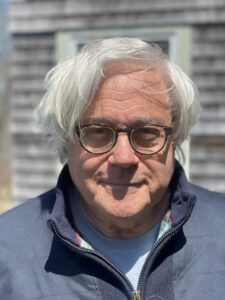By Jane Keller Gordon, Assistant Editor

Photo/submitted
Like clockwork, every year on Dr. Michael Wertheimer’s birthday, he receives cards from several breast cancer survivors, some of whom he treated 10 to 20 years ago. It’s not surprising. During his long career as a surgeon, Wertheimer was the founder and director of two multidisciplinary breast cancer clinics in Massachusetts and the director of a third. In every case, he showed deep compassion for women.
Wertheimer said, “My career paralleled the modern history of breast cancer. It’s been like a changing kaleidoscope… Now, we have early detection, better trained surgeons, and individualized, targeted therapies, but we still have a long way to go towards prevention.”
In the late 1970s, Wertheimer became involved with breast cancer surgery at the newly established University of Massachusetts (UMass) Medical School. “Back then, there was no mammography. A woman with a breast lump would come to the hospital to see her GP, who would walk her next door to a surgeon. She would be admitted as an emergency, would sign a global consent form for a biopsy and radical mastectomy, and would wake up not knowing the outcome,” said Wertheimer.
Ideas changed in the early 1980s. Clinical trials, some of which Wertheimer participated in, began to document that modified radial mastectomy, lumpectomy, and radiation were just as good. Ultimately, said Wertheimer, “It was the women’s movement that forced the surgeons to change.”
Leading progress
Wertheimer launched a fledgling multidisciplinary breast clinic at UMass. “I preached a philosophy of open access. I trained my staff to treat breast cancer as a medical emergency. We set up our own pathology room in the clinic and after a needle biopsy, I could make a breast cancer diagnosis in a few minutes right in the office… Next, we offered treatment options, for the first time ever,” explained Wertheimer. Word got out and women flocked to Wertheimer’s clinic.
A chance to correct access and outcome disparities
Twenty-eight years after joining UMass, in 2005, Wertheimer and his wife, also a well-known and highly respected UMass doctor, made a tough decision. They had moved to Boston after raising their children in Worcester and were reverse commuting from Boston. Cambridge City Hospital, now called Cambridge Health Alliance, presented Wertheimer with an opportunity he could not refuse.
Serving an indigent and underserved community, Cambridge, a famous Harvard-affiliated public hospital, had no mammography and no treatment options for breast cancer. Politically committed to reducing access and outcome disparities, Wertheimer became the founder and director of a second multidisciplinary breast cancer clinic. He said, “I had control of patient flow. When a woman had an abnormal mammogram, she was walked over to me. No one fell through the cracks.”
Wertheimer added, “In 2009, our clinic was the first in the state to be certified by the National Accreditation Program for Breast Centers (NAPBC), a branch of the Commission on Cancer of the American College of Surgeons. The hospitals from the other side of the river in Boston were looking at us.”
Even more important, data proved that Wertheimer and his colleagues met their goal. “We had corrected the access and outcomes disparities in this population. It was wonderful,” he said.
Opportunity knocked again for Wertheimer in 2010 when he became director of the Beth Israel (BI) Deaconess Medical Center’s Breast Care Center. There he rebuilt a multidisciplinary clinic, raised funds to build a new breast center, and again achieved national accreditation by NAPBC.
Now retired, Wertheimer and his wife split their time between their apartment in Boston and a house on Martha’s Vineyard. Having retired a few times, Wertheimer was gifted several university chairs embossed with institutional logos: UMass, Harvard. Sitting in any of them, most likely, he is helping someone navigate breast cancer treatment options or helping someone in some other way.












